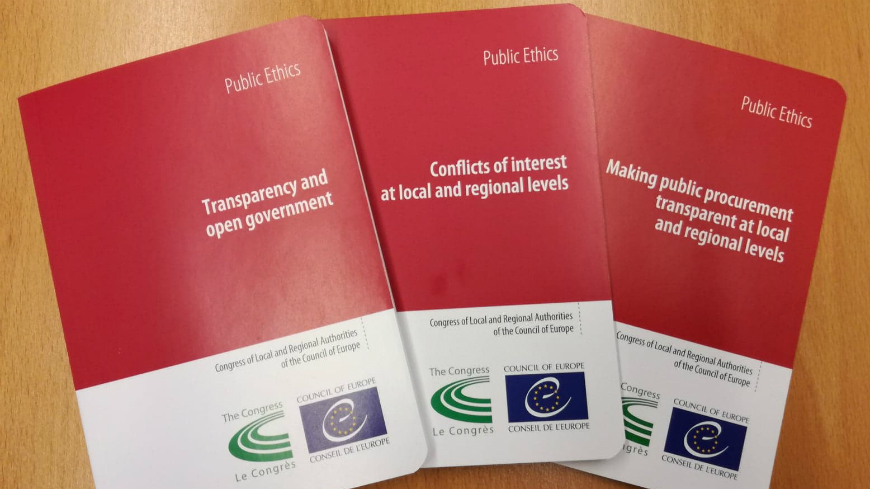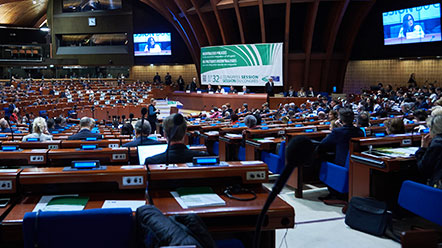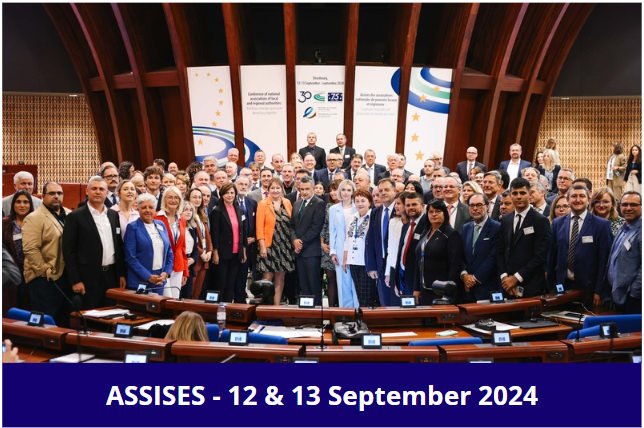The Congress has just published a series of "Public Ethics" booklets for local and regional elected representatives and public officials, compiling three practical guides entitled: "Conflicts of interest at local and regional levels", "Making public procurement transparent at local and regional levels" and "Transparency and open government".
Local and regional authorities are particularly exposed to the risk of conflicts of interest, in particular because of their proximity to citizens and local entrepreneurs. Through its "Public Ethics" collection, the Congress aims to prevent corruption by addressing it in all its aspects. This is part of the Congress' roadmap on activities to prevent corruption and promote public ethics at local and regional levels. The objective is to provide a set of practical responses to the new challenges facing local and regional authorities.
With the "Conflicts of interest at local and regional levels" guide, the Congress examines the different types of codes of conduct used to deal with conflicts of interest and their effectiveness in combating corruption. It presents the key elements of public policies for managing conflicts of interest, namely: transparency, a clear definition of responsibilities, rules on access to information, and declarations of interest.
The "Making public procurement transparent at local and regional levels" guide identifies structural weaknesses that can encourage corruption. It has been developed as a concrete tool to better understand the complex procurement process.
Finally, the "Transparency and Open Government" guide aims to raise awareness among local and regional elected representatives of the concept of "open government" as a means of preventing corruption and increasing effectiveness of public services, encouraging local and regional elected representatives to involve citizens in their work through better access to information.
- Practical guide "Conflicts of interest at local and regional levels"
- Practical guide "Making public procurement transparent at local and regional levels"
- Practical guide "Transparency and Open Government"












